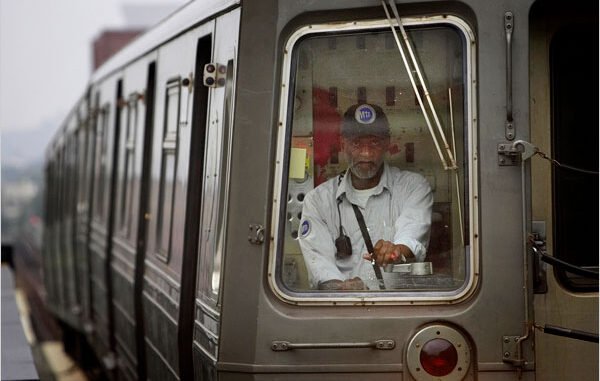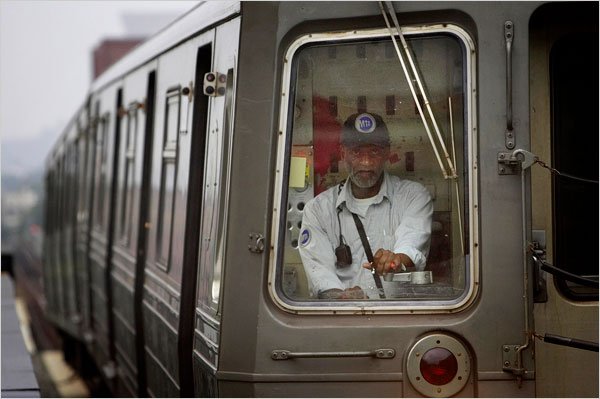
If you’re planning to work with the Metropolitan Transportation Authority (MTA) in New York City as a train operator, one of the most significant steps is passing the MTA train operator exam. This role not only offers stability and growth but also comes with a competitive salary and benefits. That’s why having a solid MTA train operator exam study guide can be the difference between passing and failing.
In this comprehensive guide, we’ll explore:
- What the MTA Train Operator Exam entails
- Key areas to focus on during preparation
- Study resources and high-value prep books
- Tips to pass the exam on your first attempt
Let’s get into it.

Photo credit: NYC Transit Forum
Contents
- 1 What Is the MTA Train Operator Exam?
- 2 What Does a Train Operator Do?
- 3 Exam Format: What to Expect
- 4 Top Study Resources and Books
- 5 Key Tips to Pass the MTA Train Operator Exam
- 6 MTA Train Operator Job Requirements
- 7 Application Process and Scheduling
- 8 Day of the Exam: What to Bring
- 9 What Happens After You Pass?
- 10 Benefits of Becoming an MTA Train Operator
- 11 Conclusion
- 12 Frequently Asked Questions
What Is the MTA Train Operator Exam?
The MTA train operator exam is a civil service test conducted by the NYC Department of Citywide Administrative Services (DCAS). It assesses the mental aptitude, problem-solving ability, and situational judgment of candidates applying to become subway or train operators within the New York MTA system.
The exam is computer-based and typically offered when there’s a hiring need. Candidates must check the MTA careers website and the DCAS exam schedule for announcements.
What Does a Train Operator Do?
Before diving into study strategies, it’s crucial to understand what the role involves. Train operators:
- Drive trains across NYC’s extensive subway network
- Make announcements, open and close doors
- Maintain safety during emergencies
- Coordinate with conductors and central control
- Handle communication with riders
- Work on tight schedules and during high-pressure situations
This job pays well—up to $85,000 per year with overtime—and offers pension, healthcare, and union protection. No wonder competition is stiff!
Exam Format: What to Expect
According to top prep sites like WikiJob, JobTestPrep, and Reddit user reviews, the MTA train operator exam usually includes the following:
1. Reading Comprehension
You’ll be asked to read passages and answer questions to test your ability to interpret text accurately.
2. Basic Arithmetic and Word Problems
Expect math questions involving percentages, averages, ratios, and real-world scenarios related to trains.
3. Situational Judgment
This section tests how you would respond to workplace dilemmas and safety issues. Questions might include conflict resolution, emergency handling, or customer service.
4. Memory and Observation
You may be asked to recall patterns, instructions, or visual layouts, which are crucial for route memorisation and signal observation.
5. Clerical Accuracy
Test your attention to detail. You’ll identify errors, compare information, or transcribe data accurately—important skills for tracking schedules and signals.
READ ALSO: Taxi Jobs in Canada with Visa Sponsorship
Top Study Resources and Books
1. Passbooks “Train Operator Exam (C-1068)”
This book, part of the Career Examination Series by National Learning Corporation, is tailored for NYC’s MTA test. It includes:
- 300+ practice questions
- Sample exams with answer keys
- Tips for time management and error elimination
2. Quizlet Flashcard Sets
Useful for quick memorisation of signals, terminology, and rules.
- “Train Operator Exam Flashcards”
- “MTA Train Operator Study Guide Flashcards”
These are great for brushing up during short breaks or daily commutes.
3. JobTestPrep MTA Prep Package
Their premium package includes:
- Timed mock tests
- Situational judgment tests
- Reading & math practice
- Realistic train operator scenarios
Key Tips to Pass the MTA Train Operator Exam
1. Start Early
Give yourself at least 4–6 weeks before the exam to study. Build a daily study plan using flashcards, mock exams, and concept reviews.
2. Practice Under Timed Conditions
This simulates the pressure of the real test. Use JobTestPrep or Passbooks timed exams to build stamina.
3. Focus on Weak Areas
Not good at math? Spend more time there. Many candidates find the arithmetic section to be trickier than expected.
4. Review the NYC Subway Rules and Procedures
Know the MTA’s operational rules. Flashcards or PDF guides on subway procedures and signal types are helpful.
5. Join Online Forums
MTA Train Operator Job Requirements
While the exam is the biggest hurdle, here are other requirements:
- Must be 21+ at the time of appointment
- Have a high school diploma or GED
- Pass a medical exam and drug screening
- Clean background check
- Be a U.S. citizen or have a work permit
Application Process and Scheduling
- Check the DCAS Exam Schedule: Look for “Exam No. C-1068” or similar listings on the NYC OASys portal.
- Apply Online: Application fees range from $61–$70. You may request a fee waiver if eligible.
- Receive Test Notification: You’ll get a test date and instructions via email.
- Take the Exam at a Test Centre: Bring a valid ID. Follow all COVID-19 or security protocols.
- Wait for Results: Results can take 4–6 months. Candidates are placed on a civil service list based on their score.
Day of the Exam: What to Bring
- Government-issued ID
- Confirmation notice or email
- Snacks and water (if allowed)
- A confident, calm mindset
Pro Tip: Arrive at least 30 minutes early. Late arrivals are often not allowed in.
What Happens After You Pass?
After passing the exam and background checks, you may receive a call letter for training at the MTA Transit Academy.
MTA Operator Training Includes:
- 8–10 weeks of classroom training
- Hands-on train simulations
- Safety procedures, signals, and emergency response
- Final qualification tests
Once training is completed, you’ll be deployed as a probationary train operator and then gradually assigned to specific lines.
Benefits of Becoming an MTA Train Operator
Career Stability
MTA jobs are unionised and have minimal layoffs.
Salary and Overtime
Base salaries start around $65,000–$70,000/year, often rising with overtime and night shifts.
Full Benefits
Includes health insurance, pension plans, paid leave, and education assistance.
Promotion Opportunities
With experience, operators can become instructors, dispatchers, or even supervisors.
Conclusion
Passing the MTA train operator exam is your first big step toward a long-lasting career in NYC’s transit system. With the right MTA train operator exam study guide, practice tools, and mindset, you can confidently clear the test and begin your journey toward one of New York’s most iconic careers.
Frequently Asked Questions
Is the MTA train operator exam hard?
Yes, but with preparation, it’s manageable. Most struggle with time pressure and situational questions.
Can I retake the exam?
Yes, but you’ll have to wait until the next official posting.
Do I need prior experience?
No prior transit experience is required. All training is provided after passing.
How often is the exam offered?
Not regularly—it depends on MTA’s hiring needs. Sometimes there’s a 4–5 year gap between openings.
Aremu Lukman Umor is an SEO writer and journalist with over eight years of experience. His opinion articles have appeared in most Nigerian mainstream media, including PUNCH, Vanguard, Tribune, Daily Trust, This Day, Guardian and others.

Leave a Reply